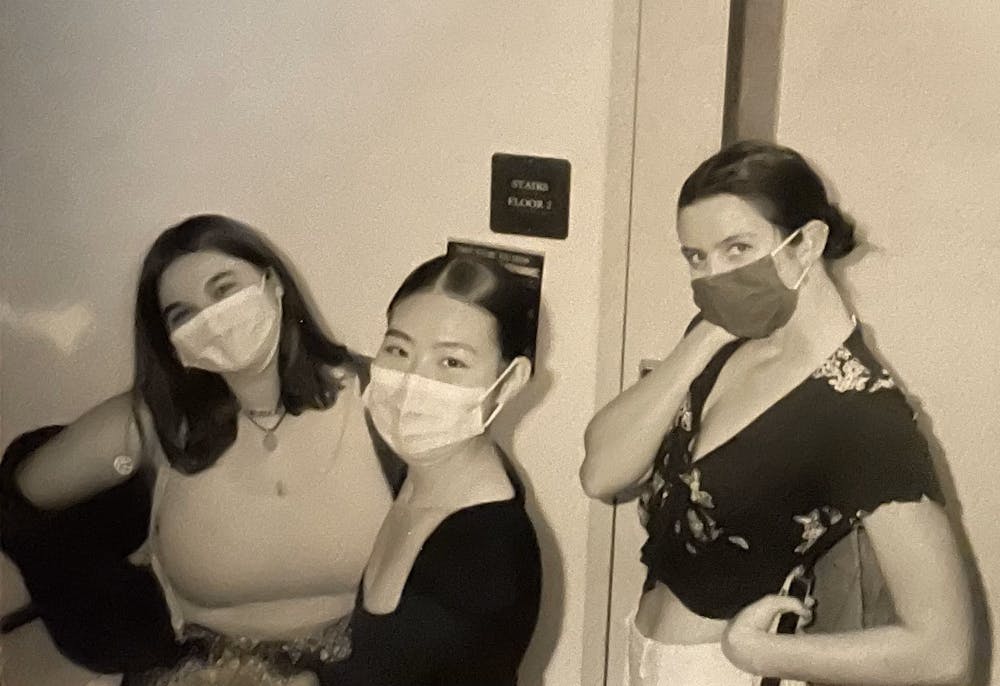As a senior with graduation lurking around the corner, I have found myself reflecting on my college experience. Largely, I have been thinking about my real experience vis-à-vis my freshman expectations. Oh, yes, I had a very specific experience in mind. My academic years would allow me to grow and explore with hundreds of days spent in self-discovery.
This academic adventure was most likely molded from TV series and movies. Think “Gilmore Girls,” season five or “Pitch Perfect” (first movie — only) or “Legally Blond.” The main character is bright, but not obnoxiously bright. She’s fun, but not crazy. She drinks, but not wildly (maybe once) and always, she forges lifelong friendships.
Well-upon reflection, let’s just say my years were at once both irreplaceable and trying, very trying. My idealized images held many truths, but my true “college experience” was far more complex and nuanced. This era of my life had many things, but my emotional and experiential trajectory was more akin to a rollercoaster than anything else. Under the guise of what I would tell my younger self, I have spent some time exploring the various facets of the college experience and the misconceptions that surround it.
My first two years of college felt like walking a tightrope — maintaining my scholarship through workouts — all while feeling the pressure to excel academically. Worse, I discovered very late that this was a common experience shared by many of my friends.
As it turns out, this high pressure also leads to high levels of anxiety. The Anxiety and Depression Association of America found that 85% of college students reported feeling overwhelmed by their responsibilities with a whopping 41.6% reporting that their anxiety affected their academic performance. For UP, that equates to over 1.4 thousand likely having physical behavioral signs like procrastination and avoidance, cognitive challenges like difficulty concentrating and possibly culminating behavioral signs like procrastination and avoidance, cognitive challenges like difficulty concentrating and possibly culminating in strained interpersonal relationships.
This stress was not depicted in my movie montage of the college experience. I was not having Reese Witherspoon’s Elle’s funny and charming life. I found myself rain checking on plans with friends to cram in a few more hours of studying, or not going to a party because I was mentally and physically tired after a day of classes. Oh, and that college student superhero ability to burn the candle at both ends? Nope — if I had an early class, never, not once, would you catch me at a soccer game.
I became overwhelmed by stress. Then, in my junior year it hit me: Not only was I not living my TV/movie college career, but there was no way I could live that life. I had to change my thinking. Instead of focusing on what I hadn’t had, I began to appreciate the meaningful experiences I had embraced. I created friendships, uncovered new hobbies that brought me joy and cultivated a sense of self-assurance in my newfound independence.

Photo courtesy of Esther Beaulac.
I would schedule a hike, and there was no way I was going to miss it. I forgave myself for a low grade. I was more spontaneous and dyed my hair, panicked and then dyed it back to the same color. But the big change I made was that I realized friends were measured by quality, not quantity. I caught up with my friends from home and we all agreed: Our college experience wasn't what we expected. But, maybe college isn’t supposed to be as depicted in the movies. Maybe it’s a little boring, maybe some days it’s really stinking hard.
The moral of the story is that the college experience is not a one-size-fits-all story, nor a goal that has to be achieved. While my four years at the University of Portland have not mirrored the movies, they have been a meaningful time in my life that were filled with challenges, lessons and memories that have shaped who I am today.
Esther Beaulac is a photographer for The Beacon. She can be reached at beaulac24@up.edu.
Have something to say about this? We’re dedicated to publishing a wide variety of viewpoints, and we’d like to hear from you. Voice your opinion in The Beacon.








